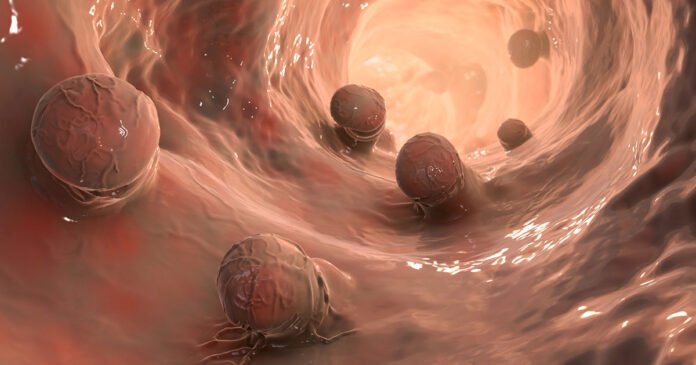Colon cancer used to be a disease of older adults. Now, one in five new cases is diagnosed in people under 54, and scientists are finally beginning to understand why.
A new study published in Nature has found a strong link between early-onset colorectal cancer and exposure to colibactin, a DNA-damaging toxin produced by certain strains of E. coli.
Researchers discovered that patients diagnosed under age 40 were three times more likely to show colibactin-related mutations than those diagnosed later in life.
By analyzing tumors from nearly 1,000 colorectal cancer patients across 11 countries, scientists were able to trace many of these mutations back to a likely exposure that happened before age 10. The implication: some young adults may be 20 to 30 years “ahead of schedule” for developing colon cancer due to early microbial damage to their gut.
The toxin itself isn’t new. About 20–30% of people carry colibactin-producing bacteria. But the question is what makes these bacteria harmful in some people and not others.
Researchers suspect that early-life factors, including birth method, antibiotic use, infant diet, and exposure to processed foods, may play a role, along with modern dietary patterns that alter gut ecology.
While the research is still early, scientists are exploring new strategies: using targeted probiotics to eliminate these bacteria, or developing stool tests that flag colibactin-related mutations so screening can start earlier.
In the meantime, lifestyle changes like following a Mediterranean-style diet, staying active, and not ignoring persistent symptoms remain crucial.
What do you make of this connection between gut bacteria and early colon cancer risk?
